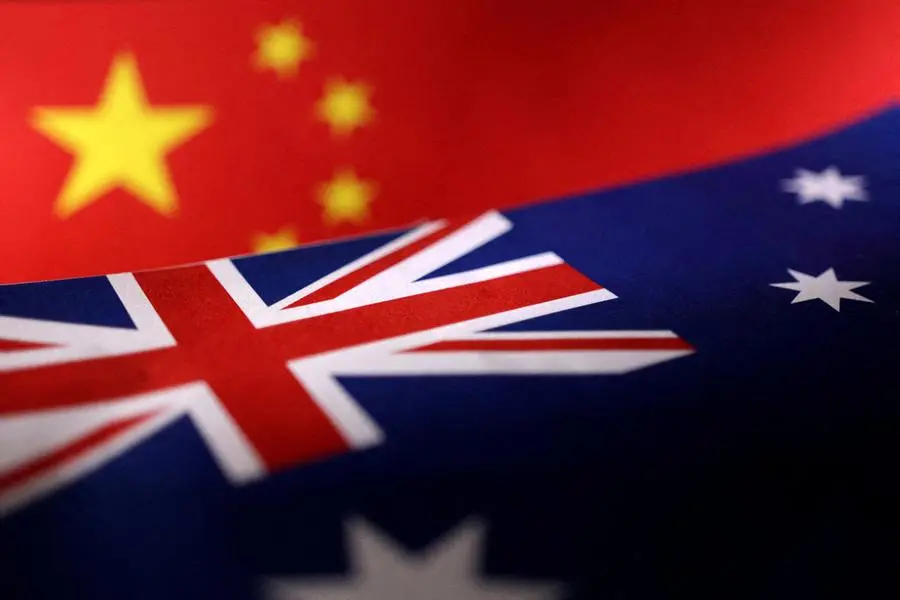PHOTO
Australia will prepare for a visit by China's Premier Li Qiang this year, Foreign Minister Penny Wong said after meeting her Chinese counterpart Wang Yi in Canberra for talks which Australia said covered human rights, tariffs, defence and regional security.
Australia and China, its largest trading partner, are rebuilding ties after a period of strained relations which hit a low in 2020 after Canberra called for an independent investigation into the origin of COVID-19.
Beijing responded by imposing tariffs on billions of dollars worth of Australian commodity imports, most of which have been lifted since a change of government in Canberra two years ago.
"I look forward to speaking frankly with you about Australians detained in China, human rights, maritime security and safety, as well as regional and international issues, such as the Pacific, Russia's invasion of Ukraine and the conflict in the Middle East," Wong said in her opening remarks.
"Dialogue enables us to manage our differences. We both know it does not eliminate them. Australia will always be Australia and China will always be China."
After the meeting, Wong addressed Chinese and Australian reporters and said the two nations would work to prepare for a visit by Li, emphasising the importance of face-to-face diplomacy to better understand each other.
Australia and China would expand dialogue on the Pacific, and on climate and energy cooperation, Wong said.
"I expressed our serious concern about unsafe conduct at sea, our desire for peace and stability across the Taiwan Strait and in our region," she said, a reference to friction with China's navy in the South China Sea.
While Beijing has made an interim decision to remove Chinese tariffs on Australian wine - one of the commodities hit by import charges after 2020 - Wong said Australia also wanted blocks lifted on beef and lobster, and they had discussed nickel market volatility.
Wong said she raised the case of Yang Hengjun, an Australian writer who was given a suspended death sentence by a Beijing court last month, and told Wang Australians were shocked by the sentence.
'MUTUAL RESPECT, COMMON GROUND'
According to a Chinese foreign ministry statement, Wang said he hoped Australia will take practical measures to uphold the principles of the market economy and provide a non-discriminatory business environment for Chinese enterprises in Australia.
He highlighted the need for independence, a likely reference to China's view that Australia's foreign policy is dominated by Canberra's strategic alliance with the United States, and said China-Australia relations are on the right track and should not go backward.
A reference to Australia needing to have an independent foreign policy that appeared in the Chinese foreign ministry's first Chinese language statement did not appear in a longer version issued later.
"The most fundamental thing is to insist on mutual respect, the most crucial thing is to insist on seeking common ground while reserving differences, the most important thing is to insist on mutual benefit and win-win situation, and the most valuable thing is to insist on independence and autonomy," he said according to the transcript.
The last time a Chinese foreign minister visited Australia was in 2017 and Wang's visit signals a thaw in diplomatic ties.
Wang will also hold talks with Prime Minister Anthony Albanese, and hold a private meeting with 11 business, university and think tank representatives. He will meet former Australian Prime Minister Paul Keating, a prominent supporter of China who has criticised Australia's AUKUS nuclear-powered submarine deal with the U.S., on Thursday. (Reporting by Renju Jose and Kirsty Needham in Sydney and Liz Lee in Beijing; Editing by Stephen Coates and Lincoln Feast)





















